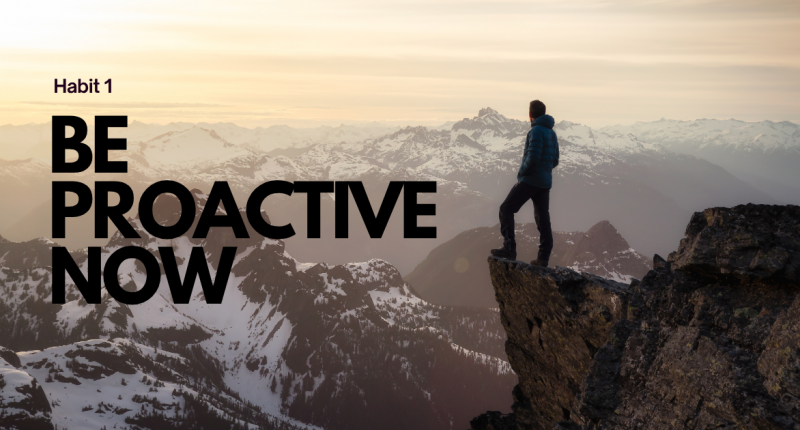Ever feel like life is happening to you? Like you’re stuck in traffic, drowning in emails? I’ve been there. But Habit 1: Be Proactive from The 7 Habits of Highly Effective People flipped my perspective.
Proactivity is the ability to take responsibility for your life and choices, rather than blaming circumstances or other people. Covey contrasts proactive people with reactive people, emphasizing that proactive individuals focus on what they can control (their “Circle of Influence”) rather than what they can’t (their “Circle of Concern”).
Stephen Covey taught me that effectiveness starts with owning your power to choose. Here’s how:
Key Concepts:
- Reactive vs. Proactive Mindset:
- Reactive people are driven by emotions, external conditions, and blame. They say things like, “There’s nothing I can do” or “That’s just how I am.”
- Proactive people recognize their agency. They say, “I can choose a different approach” or “Let’s look at our options.”
- The Circle of Influence vs. Circle of Concern:
- Circle of Concern: Things you worry about but can’t control (e.g., the economy, others’ opinions).
- Circle of Influence: Things you can control (e.g., your actions, attitudes, responses). Proactive people focus here, expanding their influence over time.
- Language Matters:
- Proactive language: “I can,” “I choose,” “I will.”
- Reactive language: “I can’t,” “I have to,” “If only.”
- Taking Responsibility:
Proactivity means acknowledging that you are the creative force of your life, not a victim of circumstances.
Why It Matters:
Proactivity is the foundation of all other habits. Without it, you’ll struggle to prioritize, collaborate, or grow. By focusing on your Circle of Influence, you build resilience, creativity, and empowerment.
Bottom Line: Proactivity isn’t about doing more—it’s about owning your choices. When you stop blaming and start choosing, you unlock the door to every other habit.
